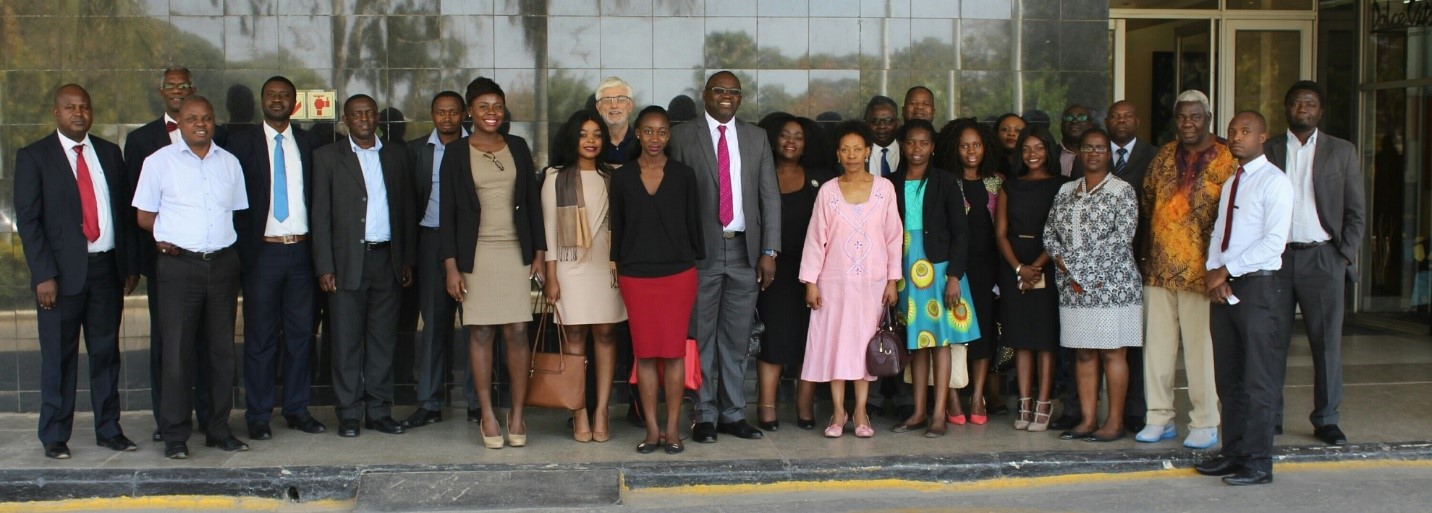The litigation and Implementation Unit has been involved in a series of research that is aimed at documenting the impact of human rights treaties and human rights bodies on the ground.
Impact database 2020+
The impact database 2020+ is a database that is designed to document the impact of the United Nations treaty system across 193 countries. The database is a collaborative effort of the Centre for Human Rights, OHCHR, Geneva Academy, Harvard Law School Advocates, University of Bristol Law School, and the Danish Institute for Human Rights. The database is intended to be a first stop to guide researchers to locate the relevant documentation that allows them to follow the path of impact to the intended point of impact on the ground. It provides a starting point for researchers who are interested in the influence that the United Nations treaty system has had on legislation, policies, court decisions and other activities of human rights stakeholders at the national level.
The database is an expansion of an independent academic study on the influence of the UN human rights treaties on legislation, policies, judicial decisions, implementation of views and concluding observations of the UN treaty bodies, and other subtle influences of the UN treaty system in 20 selected countries around the world. The 20 selected countries represent 4 countries each, from the 5 UN regional grouping. The selected countries are: African region: Egypt, Senegal, South Africa, Zambia; Asian region: India, Iran, Japan, the Philippines; Eastern European Region: the Czech Republic, Estonia, Romania, the Russian Federation; Latin America and Caribbean Region: Brazil, Colombia, Jamaica, Mexico; Western Europe and Other (WEOG) region: Australia, Canada, Finland and Spain.
The ‘Impact database 2020 +’ consists of a set of tables in the form of spreadsheets that cover the impact of the treaties and their monitoring bodies in each one the United Nations (UN) members states. The database will be built up (and be updated) over the years, but when fully operational, it will cover the 193 UN member states, reflecting the impact of the 10 treaties in each of these countries, meaning there will be 1 930 tables, containing links to documents on the UN and local level reflecting direct, material impact.
The support of the Millennium Trust Fund towards the realization of this project is acknowledged.
Human Rights Law Implementation Project
The HRLIP is an academic research project initiated by the University of Bristol with Open Society Justice Initiative and the University of Pretoria, the University of Essex and the University of Middlesex as partner universities. The Project focused on the three most advanced continental human rights protection systems, namely the inter-American system, the European system and the African system. It deals with the implementation of international human rights law in general and in particular, the implementation of the decisions issued by the international human rights bodies.

The HRLIP tracks selected decisions by UN Treaty Monitoring Bodies and the regional human rights bodies against nine countries in Europe (Czech Republic, Georgia and Belgium), Africa (Burkina Faso, Cameroon, Zambia) and the Americas (Canada, Colombia, Guatemala) to see the extent to which States have complied with them, and why. In so doing, it aims to provide some of the broader answers to why States comply, as well as providing insights which can be used by pro-compliance actors.
The project used the selected decisions as a lens through which to identify the role of the various actors, both domestic and international, in compliance. An examination of both regional and international decisions provides an analysis of the extent to which there may be a difference in the discourse and behaviour of various domestic actors depending on which body issued the decision.
The methodology for the research involves a series of semi-structured interviews; participant observation; and stakeholder workshops. These activities are aimed at examining implementation within the selected States both of decisions of UN treaty monitoring bodies and judgments and decisions of regional courts and commissions. The project looks at case law, policies, practices and mechanisms established to respond to these findings as well as the opinions of key stakeholders.
The project intends to contribute to a better understanding of the factors that influence compliance with decisions from the UN and regional human rights bodies, which can help inform and strengthen the strategies and working practices of these bodies, as well as actors engaging with them such as litigators and complainants, State representatives, and civil society organisations.
In August 2017, the Centre for Human Rights organised a capacity building workshop, in Lusaka, Zambia, to create awareness on the international human rights protection mechanisms. The workshop was attended by over 40 participants including the Attorney General of Zambia, Mr. Likando Kalaluka, a former member/chairperson of the Human Rights Committee, Dr. Zonke Majodina, legal officers and staff of various government institutions and ministries including the Ministry of Justice, Ministry of Foreign Affairs, Ministry of Gender, Ministry of Home Affairs, Ministry of Finance, staff of the Zambian Human Rights Commission, National Assembly of Zambia, other academic institutions in Zambia, Zambia Open University, Law Association of Zambia (LAZ), Centre for Human Rights researchers, civil society organisations and the press.
The project description of the HRLIP can be found on https://www.bristol.ac.uk/law/hrlip/about-us/
The templates for the project can be found on http://www.bristol.ac.uk/media-library/sites/law/hric/Confidential%20consolidated%20case%20templates%20Africa%20English.pdf


